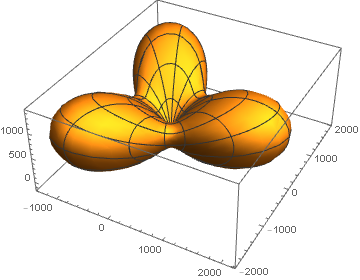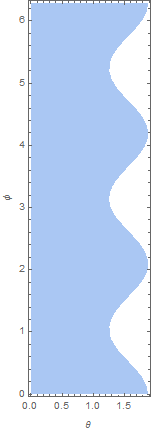I have a symmetric spherical function, which I want to integrate to determine the volume enclosed. Since it is symmetric, simple integration after multiplying with Sin[theta] gives zero. I also tried integrating the absolute value of functions by using Abs[], but it also does not seem to work. Following is example.
X = 4000*Cos[\[Theta]] Sin[\[Theta]]^2 +
1300*Cos[\[Phi]] Sin[\[Theta]]^3 (Cos[\[Phi]]^2 -
3 Sin[\[Phi]]^2) + 200*Cos[\[Theta]]^3;
Integrate[X*Sin[\[Theta]], {\[Theta], 0, Pi}, {\[Phi], 0, 2Pi}]
Integrate[Abs[X]*Sin[\[Theta]], {\[Theta], 0, Pi}, {\[Phi], 0, 2Pi}]
Will be thankful for any suggestion.


